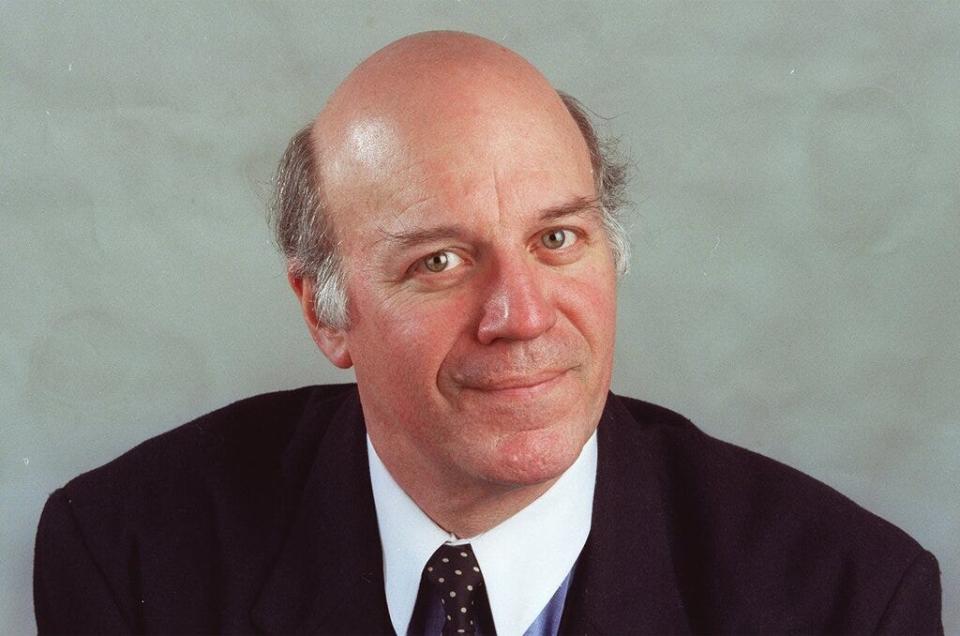Opinion/Brown: From art to politics, when we can’t believe what we see
Last year, I joined the Cape Cod Art Center and discovered a world of talented artists. What follows is the product of several fascinating discussions with the group.
I’ve been a photographer for over 40 years but only in retirement have I been able to turn my focus from documenting school life to portraits and fine arts photography. There’s a world of graphic apps that allows you to take your original work and reimagine it into something else.

Last fall, I had a small graphically altered photo on the Cape Cod Art Center’s wall. A woman teaching a painting class pointed at it and complained that she'd spent hours to make a painting — “and this fellow just punched a few buttons.”
These days, if your camera (or smartphone) is your original instrument, the computer has become your second. And since your computer and its apps have brains of their own, graphic alterations have become a kind of collaboration in a way straight photography isn’t.
From an artistic point of view, maybe we're already on a slippery slope. At what point is the work no longer ours?
From the archives: Opinion/Brown: A letter to the graduating class of 2022
Photographers can be purists, but they have apps that crop the image, sharpen it, adjust contrast and light, adjust colors — all after the photo was taken. Got an unwanted element in the photo? With practice, you can learn how to take those out. But the work is still yours.
There’s an app called Gigapixel that takes a small image, maybe from a phone, and uses artificial intelligence to blow up the image to poster size. It deduces what the additional detailing would be and adds it. The improvements are dramatic, but the image is essentially unchanged … still yours.
But then there are the apps my irritated painter objected to, the ones that — to the degree and style you select and to the intensity you prefer — turn your image into something painterly, or surrealistic. The artist is still driving the process, but it’s collaborative from here on in.
I’m bringing all this up because if there’s supposed to be “truth” in art, it depends more and more on whose truth it is. I say that because artificial intelligence (AI) has now made it possible to “create” art without a camera or a brush. New programs allow you to simply type in a request — in words. It then ransacks millions of images from art and real life and spins out a cunning amalgam never before seen. Some of these are absolutely stunning. Want a painterly treatment like Van Gogh, and voila: the Taj Mahal in the style of "Starry Night". Want to see brush strokes? Just ask for them.
Another view: Opinion/Stead: They paid into Social Security for years but still cannot get full benefits
We might be entering an age where very few get to master actual techniques and the rest just order up the art as if from a menu.
Maybe there's nothing new here but an updated version of what Lorenzo de Medici would have done by telling the artist, "I want a portrait of my wife — but nude save several long strands of pearls. I want her in her late 20s … maybe a touch of auburn in her hair … and surrounded by Egyptian servants with fans and snakes in a pharaonic temple.” But then, the artist still stood or fell on a mastery of technique.
Art has always been a combination of vision and skill. Now, apparently, all you have to do is ask for these things and sign your name to the bottom if you like. If there’s still truth in art, whose truth is it now? Is it ours just because we asked for it?
Enter “Deepfake” technology. Now AI can digest hours of film footage and pull out the subject’s voice and image — and create moving pictures of people saying and doing things they never did. Deepfake technology will soon be available to the general public — “proof” for anything you want. In the hands of a QAnon enthusiast, we’ll likely get Nancy Pelosi sitting on Satan's lap receiving a cup of children's blood from Tom Hanks. In other hands, Trump kissing Putin’s derriere in crisp, photographic black and white. Just ask the apps for it.
From the archives: Opinion/Brown: The faded yellow burqa nobody wanted to wear - and the lessons it carried
A picture may be worth a thousand words, but what if the words are lies? If we think the truth is hard to find today, it may soon be impossible to find, or to know it’s true even if we find it.
"Seeing is believing," we've liked to say. Our children may not get to say that — or believe it — in the near future. How ironic that the technology they can't get enough of may, in the end, make them obsolete. God help us.
Lawrence Brown is a columnist for the Cape Cod Times. Email him at columnresponse@gmail.com.
Gain access to premium Cape Cod Times content by taking advantage of Labor Day sales and subscribing.
This article originally appeared on Cape Cod Times: Opinion: Computers, artificial intelligence make art at a risky price

